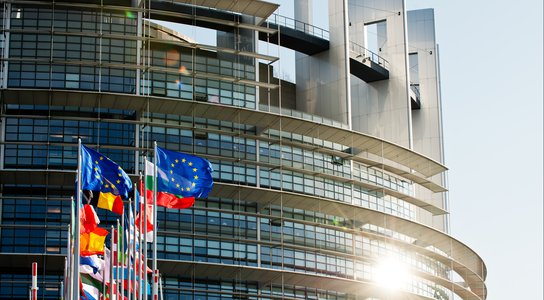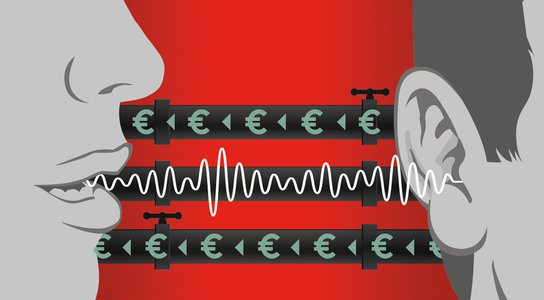Blink and you might miss it.
Earlier this month Ursula von der Leyen, the President of the EU’s executive arm – the Commission – standing in the heart of European Democracy, declared her intention to make the EU a trailblazer in the race to tackle the climate crisis, by committing to increasing the EU’s emission reduction target from 40% to at least 55% by 2030. The target is part of a broader policy push under the banner of the EU Green Deal to reform everything from the way we get to work to how we grow our food. To a crowd of socially distanced members of the European Parliament and many more EU insiders following online, Von de Leyen enthused - “We can do it”.
Her enthusiasm is important. We know that one of the major obstacles to countries taking action on climate is a deplorable lack of political will. The 55% target represents the strongest commitment to date by any major polluting jurisdiction. For the EU, the COVID pandemic has accelerated action as unprecedented government intervention has shown transformation is possible. Across the Atlantic, the U.S. response to the pandemic has been quite different - enabling an insidious pattern of fossil fuel companies receiving government handouts, whilst workers lost their jobs.
The day before Von der Leyen’s announcement, over 170 CEOs of businesses and investors including the likes of IKEA, Apple and Deutsche Bank urged the EU to raise its ambition to at least 55%. A rare glimpse of corporate unity in favour of higher ambition – although signing pledges is, of course, easier than action to bring about the deep transformation needed to save us from a burning planet.
But is it enough?
It’s clear that for the EU to be doing it’s fair share, it would need to reduce its emissions by 65% by 2030 to have any hope of staying within the necessary 1.5 degrees of global warming. Ensuring equity in the transition is crucial. This week, Oxfam released a new report showing that the richest 1% of the world’s population are responsible for more than twice as much carbon pollution as the 3.1 billion people who made up the poorest half of humanity. So we know 55% is not enough. But - it does represent a significant step forward in the world’s efforts given the EU’s climate footprint.
What about the small print?
Targets are important, but only if they are met. Last week, a UN report showed the world failed to meet a single target to stop the destruction of nature. Sober reading indeed. To have a truly, scientifically sound emissions reduction plan the EU must ensure the following elements are front and centre.
Ensure corporates based in the EU are held accountable for their impact on people and the planet: We know that just 100 companies are responsible for 71% of global emissions and that companies are attacking those who defend our land and environment. Any action which doesn’t involve getting companies to be legally obliged to protect our planet will fail. The EU must implement its commitment to bring forward legislation on mandatory environmental and human rights due diligence that crucially includes liability for companies that harm our planet.
End all support for future gas infrastructure starting now: Support for targets has even come from Europe’s gas industry lobby but they maintain that the 2030 target could be reached by switching to fossil gas and continue to support unproven carbon capture and biofuel technologies that allow the development of ever more fossil fuel infrastructure. The EU still supports and funds unnecessary new fossil gas infrastructure that undermines its existing climate targets, and worryingly the European Parliament recently voted to allow gas projects to be eligible to receive money from the EU’s new Just Transition Fund. The EU cannot tackle the climate crisis by financing the fossil fuel industry that is driving it, and it must get the gas industry out of decision making around the EU’s future energy needs.
Stop financing the destruction of climate critical forests: According to the latest data, we lost a football pitch of primary rainforest every 6 seconds in 2019. This has to stop. The EU must now seize the opportunity to come forward with due diligence rules that ensure companies, including finance, to do rigorous checks before investing and placing forest-and-ecosystems risk products into the EU market. Ultimately, these rules should ensure that supply and investments chains are free from deforestation, forest degradation, ecosystems conversion and human rights violations. If companies fail to comply with these sustainability standards they should face strong sanctions.
The EU has responded to loud calls for higher climate ambition from our kids on the streets to the boardrooms of Europe’s biggest businesses. But now the real work starts. The EU must bring in the deep transformation the world needs. Tackling the deep inequalities across Europe and around the world, inequalities which we know will be only deepened by the COVID pandemic, must be central to that transformation. The Commission must ensure that its slogan - ensuring no-one is left behind - is its guiding principle through this transition to a greener, more just economy.
Preview image credit: OLIVIER HOSLET/EPA-EFE/Shutterstock


